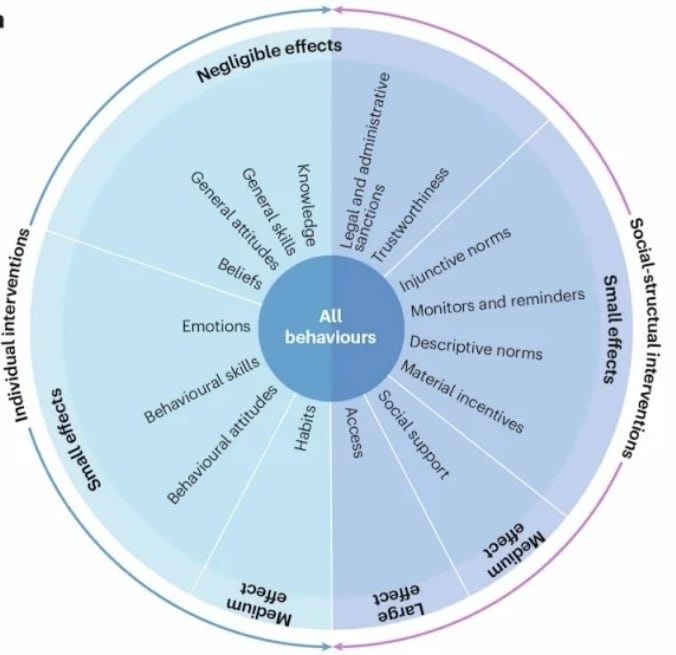JuanGarcia
Bio
"The essential thing was to save the greatest possible number of persons from dying and being doomed to unending separation. And to do this there was only one resource: to fight the plague. There was nothing admirable about this attitude; it was merely logical." - Albert Camus, The Plague
Altruism is the rational response to an irrational world.
Posts 24
Comments47
Topic contributions12
ALLFED has published peer-reviewed cost-effectiveness analyses estimating that this work is likely to be more cost-effective than GiveWell interventions for saving lives in the present generation, and potentially more cost-effective than artificial general intelligence safety for improving the long run future (resilient foods and resilience to loss of electricity/industry).
Independent evaluations of cost-effectiveness of the type of work that ALLFED does can be found here:
- CEARCH's in-depth analysis of interventions for Resilience to Nuclear & Volcanic Winter. They argue that policy advocacy campaigns are the most promising intervention, around 30x the cost-effectiveness of a typical GiveWell-recommended charity.
- Unjournal's 1st eval is up: Resilient foods paper This is an evaluation of the aforementioned peer-reviewed papers by subject-matter expert senior researchers.
- Speedrun: Demonstrate the ability to rapidly scale food production in the case of nuclear winter by Marie Buhl from Rethink Priorities: "my (extremely rough) estimate that this project reduces x-risk with a cost-effectiveness of ~$260 million per 0.01% absolute reduction[1] (~70% confidence interval: 2.2 million to 2.7 billion). If this estimate were accurate, then this project would clear our median roughly estimated cost-effectiveness bar of $500M per basis-point of x-risk averted".
- Famine deaths due to the climatic effects of nuclear war by Vasco Grilo: "I guess the true cost-effectiveness is within the same order of magnitude of that of GiveWell’s top charities"
- Shallow evaluations of longtermist organizations by Nuno Sempere: "I disagree strongly with ALLFED's estimates (probability of cost overruns, impact of ALLFED's work if deployed, etc.), however, I feel that the case for an organization working in this area is relatively solid." (Note that this is a 3 year old analysis, when the funding situation and risk landscapes were different).
Appendix: list of project titles
- Recovering infrastructure as quickly as possible after a catastrophe
- Retrofitting ships to be wind-powered
- Emergency CubeSat
- Developing plants resilient to low sunlight, temperature, or water
- Foods from thin air: Towards CO2-based diets for deep space missions, Earth's environment, and existential food resilience
- Potential of combined production of lignocellulosic sugar and leaf protein concentrate for preventing mass starvation in an ASRS
- Potential of microbial fats for preventing mass starvation in an ASRS
- Potential of single cell protein from wood and agricultural residues for preventing mass starvation in an ASRS
- Potential of single cell protein via solid fermentation of peat/lignite for preventing mass starvation in an ASRS
- Rapid repurposing of industrial infrastructure for microbial food production in global catastrophic food shocks
- Retrofitting single cell protein animal feed factories to single cell protein human food factories
- Agricultural residues: Potential for feeding ruminants
- Integrated model with addition of crop relocation, expanded planted area, and (maybe) leaf protein concentrate
- Quick cost estimates of potential resilient foods
- Systematic review of health outcomes of nutritional issues in an ASRS
- Integrated model with infrastructure and population loss
- Expanded planted area scale-up analysis
- In-depth analysis of labor and equipment for industrial food production
- Food production during an x-pandemic
- Analysis of international cooperation in an ASRS like nuclear winter
- Cost and scaling of energy/electricity production in a catastrophe
- GIS analysis of water supply and demand if the sun is obscured
- Integrated model with varying number of Tg and duration of aerosols
- Literature review and mapping of regions resilient to global catastrophes
- Estimating worst drop in food production globally so far for every country
- GCFF mental health
- Literature assessment on whether people inexperienced in growing food could be trained quickly to do so
- Supply-chain modelling under severe disruption scenarios
- Mortality from losing infrastructure if basic needs are met
- Trade economics without money in loss of industry
- Produce a governmental ASRS response plan for a particular country
- Produce ASRS or GCIL response plans at various governance levels
- Piloting agriculture in ASRS conditions
- Water treatment in an x-pandemic
- Plant-based meat to displace inefficient animal agriculture in an ASRS
Interesting post. Just a quick comment on the effectiveness of "research and dissemination" and "Spreading “we’re all in this together” frames" type interventions. These sound similar to interventions that policymakers try time and again in response to disasters because they're intuitive, despite the fact that they don't work very well or at all.
The source I linked describes a comparison of interventions for pandemic response in the general public, so it's not directly applicable, but I worry a similar issue may be at hand here. The interventions aimed at changing minds generally have negligible effects, especially compared to other interventions such as providing social support and tapping into individuals’ behavioral skills and habits as well as removing practical obstacles to behavior.
I don't know what the equivalent on the "nuclear war prevention" area is of these other interventions that work well for pandemic response, but I do worry that the "knowledge and beliefs" type interventions proposed would also be negligible like they are in this other field.

I was reading one today I think on a similar vein to those you mention
https://library.oapen.org/bitstream/handle/20.500.12657/75844/9781800647886.pdf?sequence=1#page=226

Thank you for doing this really important work, I'm really looking forward to the results.
From your list of organizations I would suggest small edits for ALLFED: the actual value raised from SFF over the years is around $3 million not $1.5 million if my estimates are correct. And the link to the research outputs is actually this one. The value of grants from OP is zero.